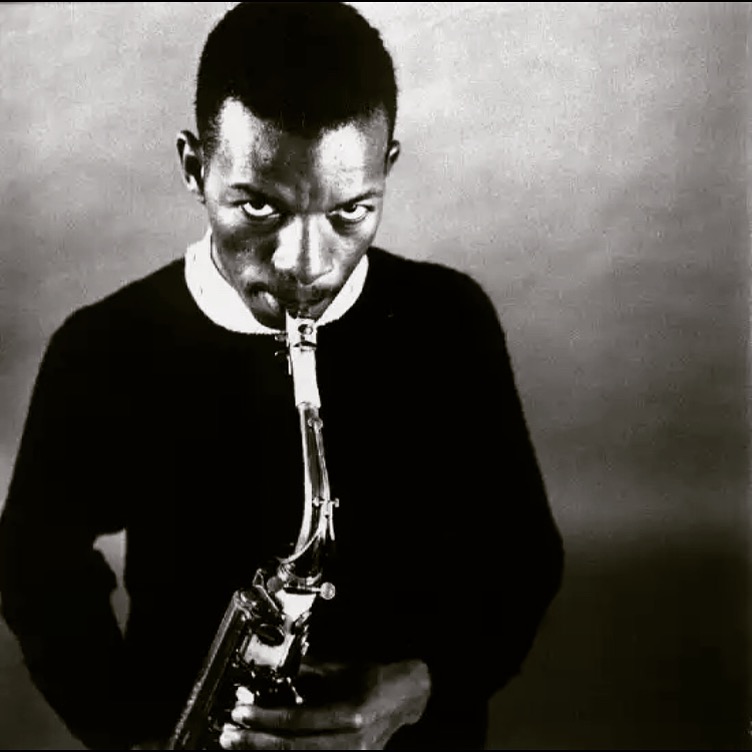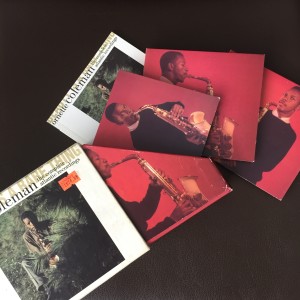
Ornette Coleman and Music Therapy
Ornette Coleman, one of the most legendary and influential musicians of all time, passed away on June 11th, 2015, at the age of 85. I first heard of Ornette when my teacher Omar Tamez got me into all these amazing jazz albums back in Monterrey, Mexico. I also remember that during my first year at Berklee College of Music, there was a time when I couldn’t stop listening to the “Beauty is a rare thing” box set I bought at one of the CD stores around school. It was the summer of 2006, and I remember this music had a big impact on me, as I searched for my own identity while living in a new country within the structure of formal music education.
The music of these records really moved me. It felt so organic, honest, and personal. I loved the melodies, the interaction, the feel. One of my favorite pieces was “Una Muy Bonita” (1960), which featured the ‘original quartet’ formed by some of my favorite musicians (Ornette Coleman-sax, Don Cherry-trumpet, Charlie Haden-bass, and Billy Higgins-drums).
Ornette is regarded as one of the pioneers of free jazz, partly because of his album “Free Jazz” (1960), in which there are two quartets playing together.
https://youtu.be/xbZIiom9rDA
But even if regarded as a pioneer of free jazz, Ornette’s work still relied heavily on composition. These were often melodies without a set sequence of chords, played by a band without a piano player. Ornette liked to improvise without feeling confined to a pre-conceived harmonic structure, and his play in between notes was often perceived as out-of-tune by colleagues and critics.
https://youtu.be/bJULMOw69EI
The day Ornette passed away, his influence was felt on many circles in social media, where countless people expressed gratitude and admiration for his life and vision. Many of the comments stated by musicians and artists identified Ornette as an influential source of inspiration in their own search for authenticity. Guitarist Pat Metheny wrote about it 16 years earlier in the preface to the book Ornette Coleman: His life and music by Peter Niklas Wilson:
“He has inspired me -and by this time it must be thousands of other musicians- to answer to a standard that demands that we look into our own hearts and minds to see what we may have to offer in our own personal musical languages -if we can only muster up the courage to listen to the songs inside of us the way Ornette has done.” – Pat Metheny
The process of exploring our authentic musical self is something we often work with in music therapy. At Berko Music Therapy, we often help people access the music resources they have acquired throughout life, whether their experience includes any form of training or not. This often results in a creative process where people play instruments they have never played before, which can facilitate a deep level of introspection, self-expression and genuineness. Perhaps Ornette was thinking along those lines when playing violin and trumpet, instruments in which he had no formal training.
https://youtu.be/y09k4zyIfO8
One of the things that separated Ornette from other musicians was his uncanny ability to create his own world. Much like a Miro, or a Pollock, he defined his own rules and reached a very unique and personal level of creative expression while defying established artistic and societal norms and mediums. We can learn a lot from the expansive ways in which Ornette thought about music. In the following interview, he at times almost sounds like a music therapist.
“My real concern for the things that I would like to perfect in music is to heal (suffering, pain, solitude), when you are depressed, music seems to be a very good dose of light that causes people to feel a lot better.” -Ornette Coleman
More selected videos:
Learn More

